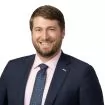In an unexpected turnabout from previous guidance, the CDC updated its "Interim Public Health Recommendations for Fully Vaccinated People" to recognize that individuals who are fully vaccinated against COVID-19 may stop wearing masks or maintaining social distance in the vast majority of indoor and outdoor settings, regardless of crowd size.
People are considered fully vaccinated:
- 2 weeks after their second dose in a 2-dose series, such as the Pfizer or Moderna vaccines, or
- 2 weeks after a single-dose vaccine, such as Johnson & Johnson's Janssen vaccine
In deference to local authorities, fully vaccinated individuals must continue to abide by existing state, local, or tribal laws and regulations, and applicable workplace guidance. Further, they must follow rules put in place by businesses. Many state and local jurisdictions currently have mandatory rules requiring masking and social distancing, mostly while indoors. Given this updated guidance, it is likely that state, local, and tribal governments, as well as businesses, will update mask requirements and guidance in the near future. We had previously blogged on the CDC's updates allowing fully vaccinated individuals to remove masks outdoors, with certain restrictions.
The CDC new position can be summed up as follows: if you are fully vaccinated, you are protected, and you can start doing the things that you stopped doing because of the pandemic. But the new guidance comes with caveats. Even vaccinated individuals must cover their faces and physically distance when going to doctors, hospitals, or long-term care facilities like nursing homes; when traveling by bus, plane, train or other modes of public transportation, or while in transportation hubs like airports and bus stations; and when in prisons, jails or homeless shelters.
Specific updates in the new guidance include:
- Fully vaccinated people no longer need to wear a mask or physically distance in most settings, except where required by federal, state, local, tribal, or territorial laws, rules, and regulations, including local business and workplace guidance.
- Fully vaccinated people can refrain from quarantine and testing following a known COVID-19 exposure unless they are residents or employees of a correctional or detention facility or a homeless shelter, or unless they start showing COVID-19 symptoms after exposure.
For now, if you've been fully vaccinated:
- You will still need to follow guidance at your workplace and requirements put in place by businesses.
- If you travel, you should still take steps to protect yourself and others. You will still be required to wear a mask on planes, buses, trains, and other forms of public transportation traveling into, within, or out of the United States, and in U.S. transportation hubs such as airports and stations. Fully vaccinated international travelers arriving in the United States are still required?to get tested within 3 days of their flight (or show documentation of recovery from COVID-19 in the past 3 months) and should still get tested 3-5 days after their trip.
- You should still watch out for symptoms of COVID-19, especially if you've been around someone who is sick. If you have symptoms of COVID-19, you should get tested and stay home and away from others.
The content of this article is intended to provide a general guide to the subject matter. Specialist advice should be sought about your specific circumstances.







